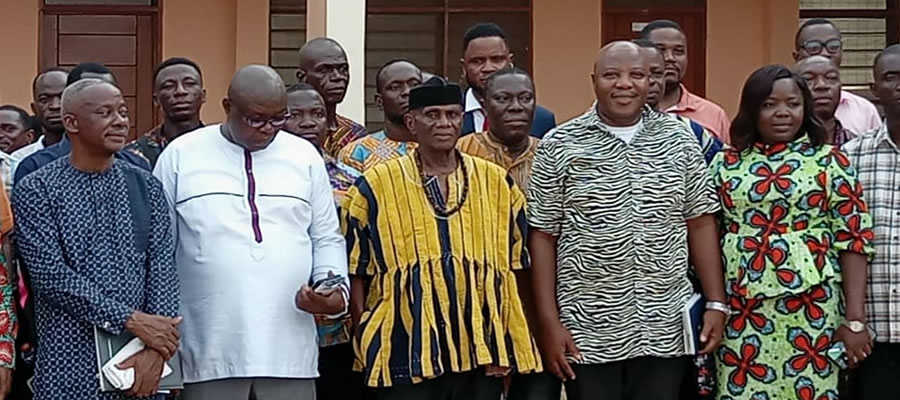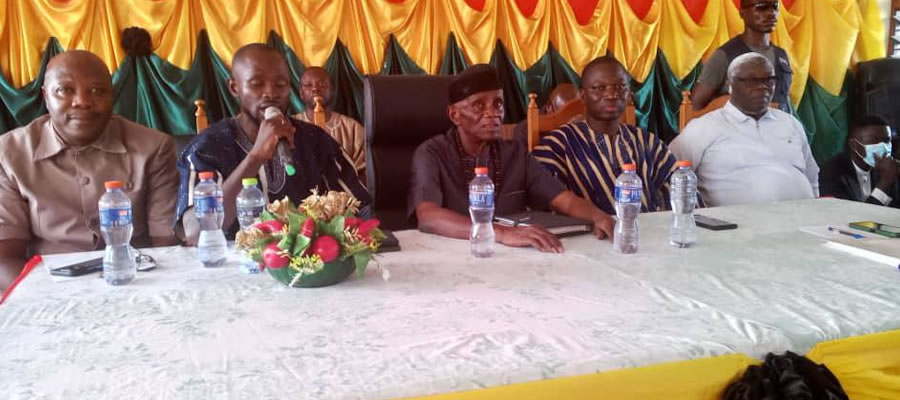

Telecommunication and Postal Services
Telecommunication facilities in the district are limited. Presently, the district is not connected to the national telecommunication network. However, almost all mobile telephone network services exist. The only television network in the district is GTV, which receives signals from either far away Kete Krachi or Bimbila. These telecommunication systems are not reliable as they often break down.
In terms of postal services, the district has no Post Office. As a result, letters take longer days than usual to reach the district - a situation that is impacting negatively on the district’s development.
Electricity
Ironically, only four (4) out of over 20 clearly defined communities in the district are connected to the national grid. Coupled with this are the rampant power outages being experienced by the people of Nkwanta North District.
The district has two main rivers namely Oti and Kpassa as well as a number of streams that form the Oti Basin. These water bodies serve as source of water for domestic purposes. Ironically, the district does not enjoy pipe borne water system. The DANIDA, DFID and other development partners in collaboration with the Government of Ghana under the Small Town Water Supply Project will soon provide mechanised pipe system in communities along the Kpassa - Damanko trunk road.
There are 80 boreholes in various communities in the district, out of which 66 are functioning. Water delivery in the district is being manned by the District Water & Sanitation Team (DWST) of the District Assembly in collaboration with the Community Water Development Boards and Community Water and Sanitation Committees (WATS AN).
Access to safe water is very crucial in the development of the district. Only about 30%, as of 2009, of the population has access to safe water. This limited access to safe water in the district negatively affects the health of the people and hence socio-economic development.
Waste Management
Waste management remains a challenge to the Nkwanta North District Assembly. This is due to inadequate funds, logistics and environmental health staff to effectively manage waste in the district. Refuse Disposal in most communities in the district is still at the crude stage where solid and liquid wastes are dumped in the open at designated sites. Apart from household pit latrines, there are virtually no public places of convenience in the district. Couple with this, the drainage system in all the communities is poor or virtually non-existent. However, the District Environmental Health Unit is making efforts to .give the district capital, Kpassa, a face-lift by adopting organised refuse dumping methods.
Housing
Development of the housing sector in the district is at a snail pace. Apart from few individuals who put up their own houses, no real estate developer is investing in the housing sector in the district. Presently, the Assembly is in the process of building residential accommodation for its staff in Kpassa.
Generally, according to a field survey conducted by the DPCU in 2009, 85% of houses in the district are built with local earthen materials like mud and bricks whiles corrugated iron sheet (55%) and thatch (44%) are the main materials for roofing.
Date Created : 11/21/2017 3:41:21 AM









 facebook
facebook
 X
X
 Youtube
Youtube
 instagram
instagram
 +233 593 831 280
+233 593 831 280 0800 430 430
0800 430 430 GPS: GE-231-4383
GPS: GE-231-4383 info@ghanadistricts.com
info@ghanadistricts.com Box GP1044, Accra, Ghana
Box GP1044, Accra, Ghana